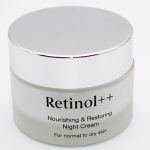
You have properly cleansed your skin of any dirt and makeup. You have properly exfoliated to remove dead skin cells and reveal a fresh layer of the skin. You even toned your skin to restore it to its proper pH balance. What is it that you reach for next? Most people would concur that the fourth step is to moisturize.
It is here that the vast majority of the population forgets one crucial step: Serums. Serums are the workhorse in any skincare routine. Just like your wardrobe is incomplete without a fantastic pair of jeans, your skincare routine is lacking without a great serum, and here is why.
What is a serum? Why do I need one? A serum is a light, non-occlusive, power-packed treatment that is specifically meant to target any problems that you may have with your skin. Unlike a moisturizer, a serum's job is not (just) to hydrate but also to target and treat the major skin concerns such as dullness, hyperpigmentation, aging or even acne.
It can contain about 70% active ingredients, whereas most moisturizers hardly contain 5-10%. This clearly explains why they are so effective, and why they tend to be more expensive. Moisturizers need to have a certain concentration of emollients or thickeners as these are the ingredients that give it its texture.
Serums are able to avoid the need for such ingredients as well as occlusive and sometimes irritating ingredients such as mineral oil. These make serums a "cleaner" bet as well. Finally, serums are meant to deliver nutrients and powerful ingredients; therefore, they have much smaller molecule sizes, making them adept at reaching the innermost layers of skin encouraging the skin cells to produce and repair collagen, fight free radicals, boosting the overall health of the skin creating a beautiful glow.
Once your serum is on, apply a moisturizer to seal in all the goodness. The thicker and larger molecules of a traditional moisturizer will act as a protective layer while providing hydration, unless, of course, you do not need any more hydration.
Serum Types
The next logical question is what type of serum should be used. The answer to this question largely depends on the age of your skin, the type of skin and your particular skin concerns. Serums can be broadly divided into two subcategories: water-based and lipid-based.
| Water-Based Serums
Serums are ideal for better delivering high-concentrated active ingredients to target specific skin concerns. Water-based serums are thin, light and very fast absorbing with water as the dominant ingredient. Other soluble in water ingredients could be found in the water-based serums are - hyaluronic acid, carnosine, resveratrol, vitamin C or L-ascorbic -acid, vitamin B complex, copper peptide, bioactive oligopeptides or peptides, alpha lipoic acid, grapeseed extract, and green tea extract.
Active ingredients may differ from serum to serum. The choice of active ingredients should be based on the type of your skin and to the skin specific concerns. It can be more than one active ingredient and more than one serum but do not overfeed your skin.
| Lipid-Based Serums
As the name suggests they contain a significantly lower amount of water, thus eliminating the need for preservatives as mold and bacteria cannot form in a climate devoid of water. These are predominantly anti-aging as they contain ingredients that can only be delivered through dissolving in fats.
Such ingredients are needed to moisturize and reconstruct the lipid barrier of our skin. The lipid barrier is essentially two rows of tightly wound fat molecules right under the stratum corneum, which is responsible for retaining water and hydration within the skin.
As we age, this layer breaks down; ultimately resulting in dry, parched, wrinkle-prone skin. Ingredients which help this are vitamin A (retinol, retinoids), vitamin E, ceramides, essential fatty acids (linoleic and alpha-linolenic acids), Omega 3, Coenzyme Q10.
It is imperative to use lipids which will line up properly against those already present in the skin. According to Dr. Denese, lanolin, some plant, and mineral oils are not identical to human lipids and will not line up properly against those already present in the skin and may clog the pores. Though, some studies reported that lipids are found in plant oils such as rosehip seed oil, pomegranate seed oil, and argan oil are highly beneficial for aging skin.
How to Use Serums
Finally, the last piece of the puzzle. A water-based serum is applied before lipid-based as the fourth step in your daily skincare routine after exfoliation. If you use a few serums, apply the first what has the thinnest consistency.
Water-based serums are absorbed quickly, you do not need to wait more than 15-20 seconds before applying lipid-based serum as the fifth step in your daily routine. Allow 3-5 minutes lipid-based serum to be absorbed before you go to the next phase of your skincare routine.
Serums are very potent, so only a couple drops are required. They should ideally be used in the morning as well as the night. In the daytime, they are beneficial in protecting the skin from environmental aggressors, while in the evenings they are useful in restoring the skin. They should be used after any AHA/BHA and other treatment products.
Some combinations of active ingredients reduce effectiveness each other, may cause irritation and an allergic reaction.
Do not use together
Retinol & Vitamin C
The combination Vitamin A and C may irritate the skin.
Vitamin C & AHA
Vitamin C becomes unstable when mixing with AHA.
AHA or BHA & Retinol
Combined exfoliation, skin irritations, retinol may become unstable.
Salicylic Acid & Glycolic Acid
The combination of two acids will double strip your skin. It can irritate your skin.
Benzoyl Peroxide & Hydroquinone
Can cause staining skin.
Finally, seal in all the wonderful ingredients with moisturizing cream suited for your skin type.
You have just read an exhaustive cheat shit on the need, benefits, and usage of serums. Make haste, your skin awaits.
Related
 Essential Skincare Tips to Slow Skin Aging
Essential Skincare Tips to Slow Skin Aging
Aging is one of the inevitable natural processes. As one progresses in years...
 Retinol – Skincare Anti-Aging Benefits
Retinol – Skincare Anti-Aging Benefits
Retinoids are a broad term used to refer to the vitamin A derivatives...
 Skin Exfoliation – Important Step in Skincare Routine
Skin Exfoliation – Important Step in Skincare Routine
Skin exfoliation is the process of removing the top layer of dead dull skin, either by scrubbing or by the use of acids...



